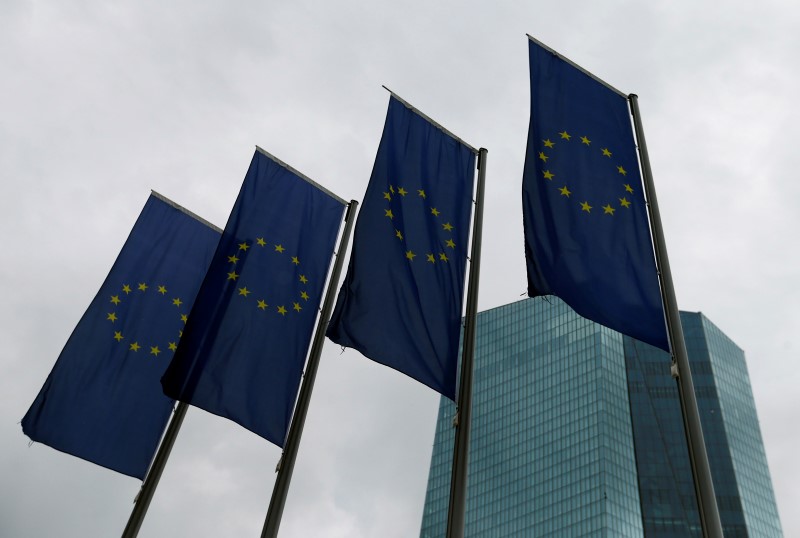By Francesco Canepa
FRANKFURT (Reuters) - The European Central Bank increased its company debt purchases last week despite the summer lull, bringing the total bought in two months to 15 billion euros, more than many in the market had expected, data showed on Monday.
The ECB bought 1.76 billion euros (£1.49 billion) worth of corporate bonds in the seven days to August 5, up by 29 percent on the previous week, while purchases of sovereign debt, which accounts for a much larger portion of the total, slowed.
The ECB started buying bonds issued by euro zone companies - provided that they have at least one investment grade rating and are not banks - on June 8 in a bid to stimulate hiring and investment by lowering borrowing costs for firms.
Since then, it has spent 7.5 billion euros a month on that debt, in line with the 5-10 billion euros range that sources had told Reuters the ECB was targeting before the programme started.
Several market observers had voiced doubts that the ECB would manage to buy so much given the reluctance of many credit investors to part with their existing holdings at a time when high returns on investment are hard to find.
"If they can achieve this rate of purchases in the quiet summer period, it should be very encouraging for the more liquid autumn months," Matthew Bailey, a credit strategist at JPMorgan (NYSE:JPM), said.
"We are still sceptical that they can maintain the current rate of purchases for very long, as dealer inventories of eligible bonds will eventually be depleted," he added.
Bailey estimated the ECB may have to start slowing the monthly pace to 3-4 billion euros in the coming months.
To achieve the current pace, some of the six national banks buying on behalf of the ECB have also snapped up debt issued by companies with "split" ratings - meaning that their debt is considered "junk" by one or more rating agencies and investment-grade by others.
These include Spanish network operator Cellnex Telecom (MC:CLNX), whose 750 million euros seven-year bond issue was tapped by the Bank of Spain last week.
The bond is only due to hit the market on August 10 but the yield on it, which measures the income that an investor would earn if it bought it now and falls when the price goes up, has already come down to 2 percent compared to almost 2.5 percent when the bond was priced last week.
One in five of the bonds bought by the ECB since the start of the programme had a negative yield, meaning the bank would get back less money than it invested if it were to hold it to maturity.
Negative-yielding debt bought by the ECB typically includes paper maturing over the next four years and issued by highly-rated or state-backed companies such as Swiss food group Nestle (S:NESN) or French power supplier Engie (PA:ENGIE).
